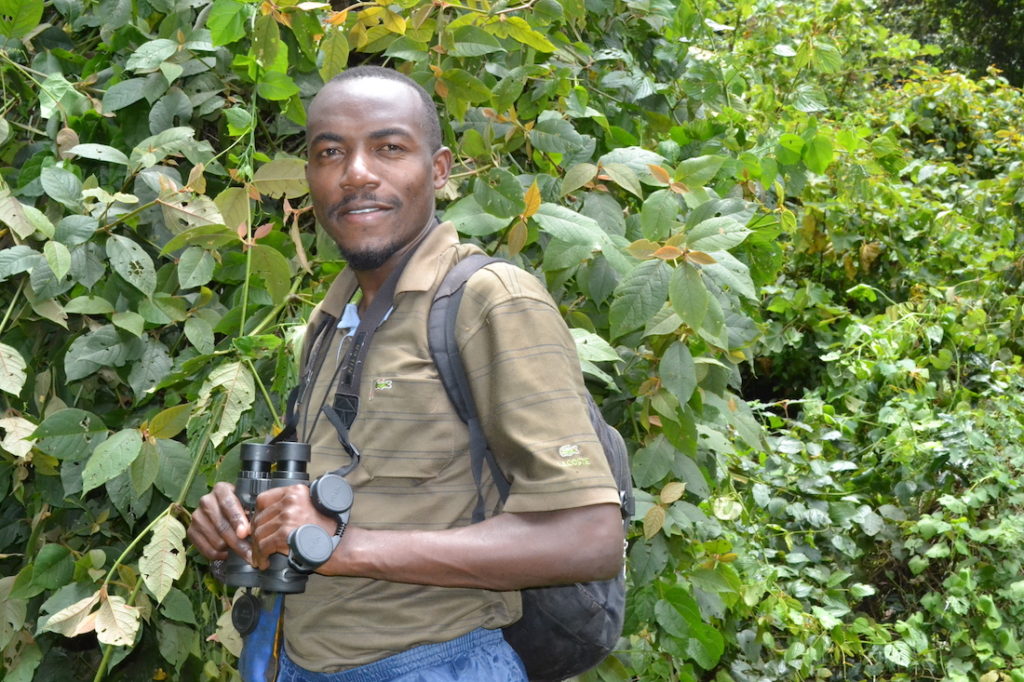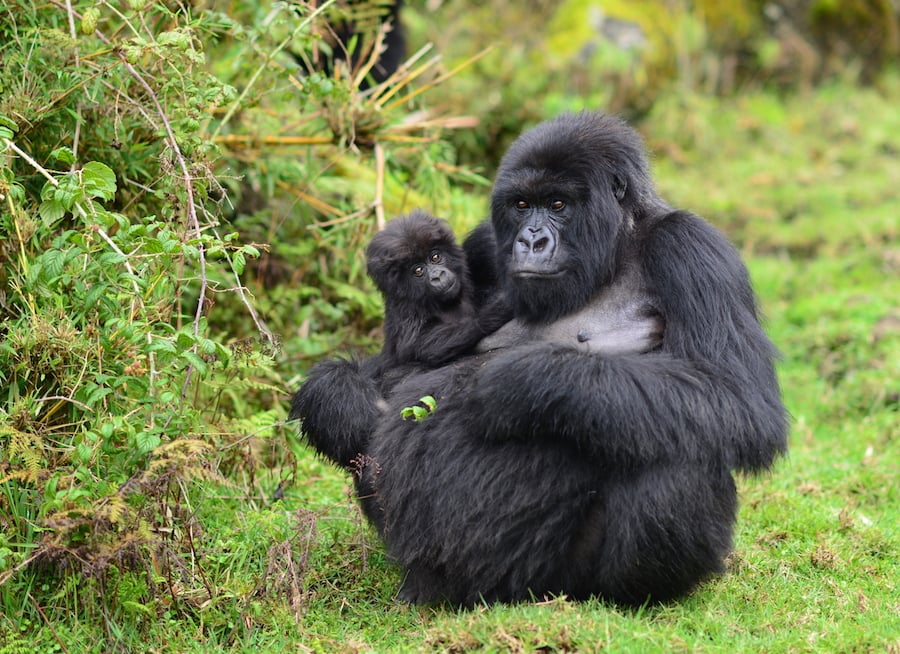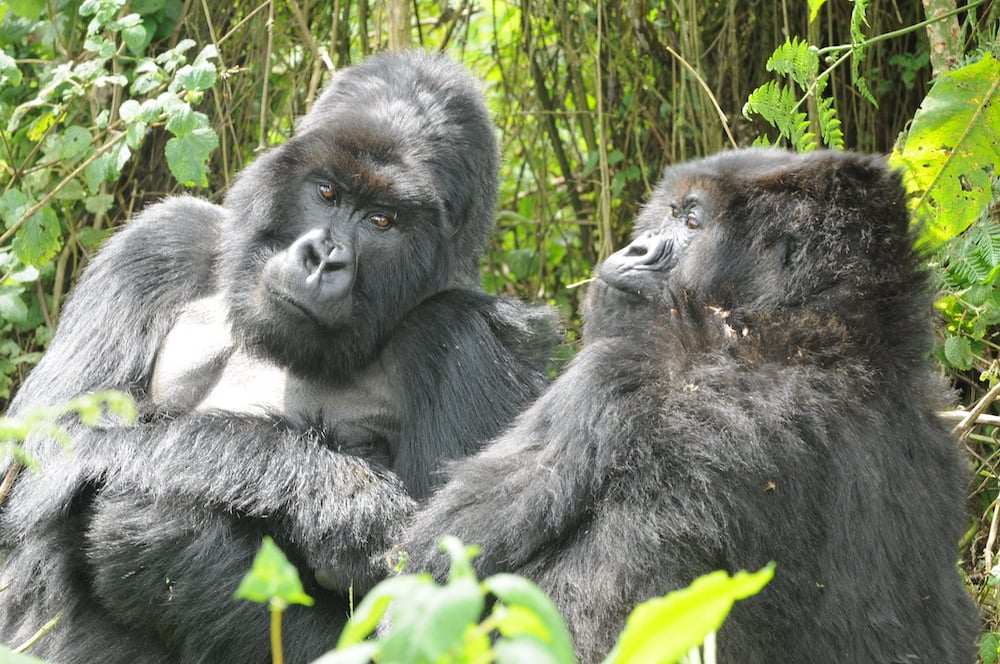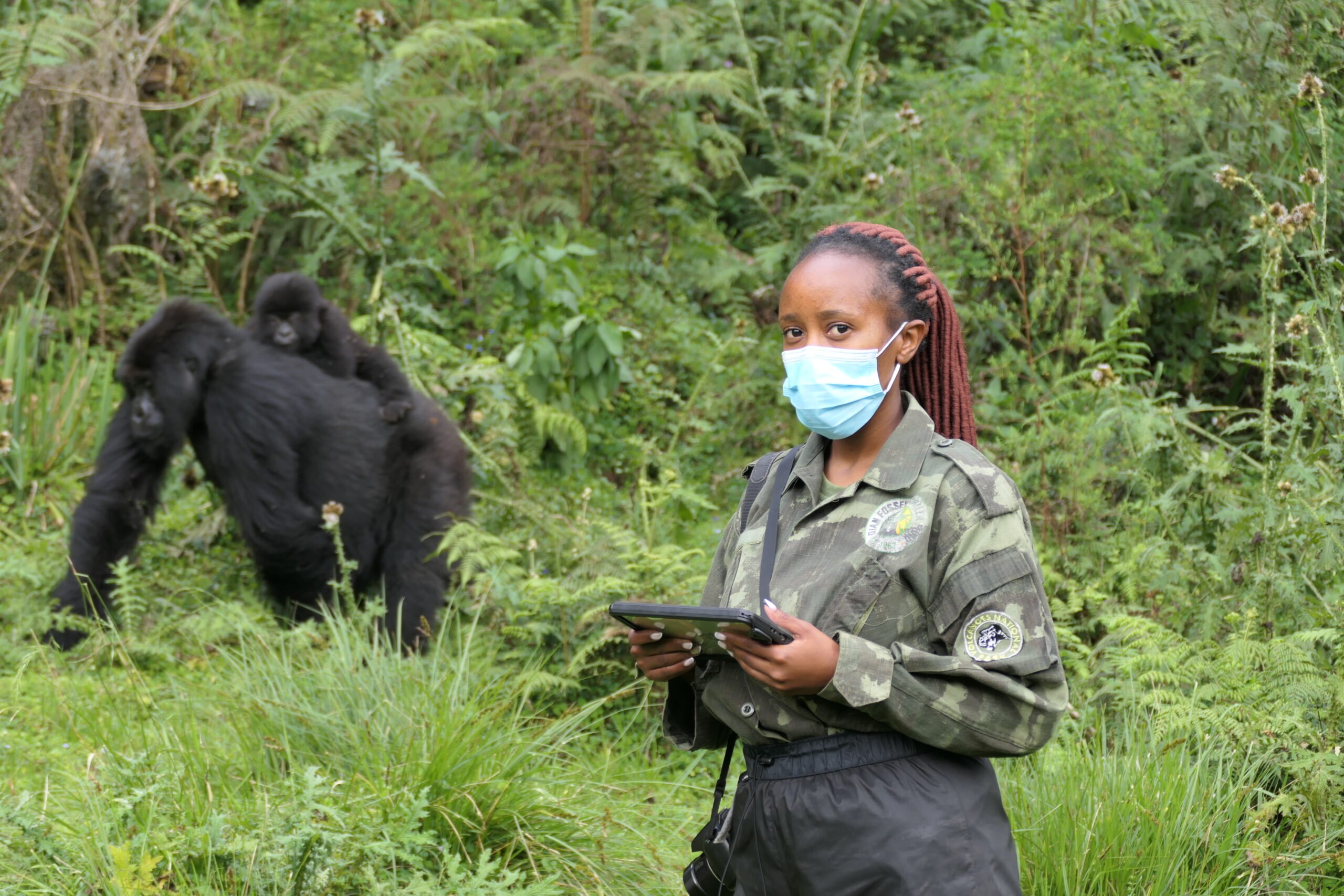More than 50 years of scientific research about gorillas and their habitat have been carried out at the Dian Fossey Gorilla Fund’s Karisoke Research Center since it was founded by Dian Fossey in 1967. Critical to this has been a long line of research assistants, who do everything from collecting data on gorilla behavior to processing fecal samples in the lab, once they go through an extensive training period. Many have gone on to lifelong careers in primatology, conservation or related fields, and some have also moved up through the ranks at the Fossey Fund, such as Felix Ndagijimana, our director of Karisoke and Rwanda programs.
Recently, we hired three new research assistants and they are now busy with the long training process, which includes working side by side with senior staff, learning practical skills and how to collect data in the field, as well as how to identify all the gorillas that we monitor.
After three months of training, the research assistants who are assigned to our gorilla program will be tested on their gorilla identification skills, as well as the behavioral data collection protocols. This test has to be passed with a 100 percent score, in order for the assistants to proceed to actual data collection in the field, as well as transferring this data to our long-term data bases.
The three new assistants in training this year include Jean de Dieu Nsanzineza and James Munyawera, who will work in our gorilla program, and Jean Claude Twahira, who will work in our biodiversity program.
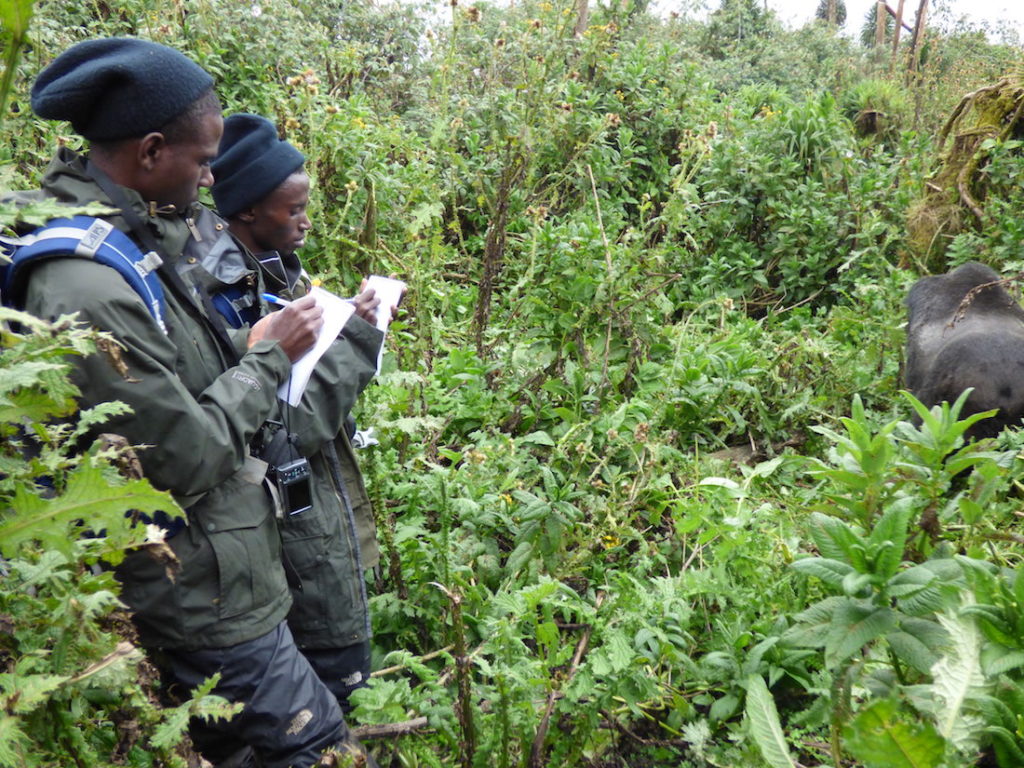
Working hard and learning a lot!
Nsanzineza earned his bachelor’s degree in biology/zoology and conservation from the University of Rwanda and did field courses at Karisoke during his second and third year of studies. He was also selected to conduct his bachelor’s dissertation at Karisoke, and focused on endangered golden monkeys with support and supervision from the Fossey Fund.
“Even though it means waking up before sunrise, climbing the volcanoes to find gorillas, and enduring all kinds of weather conditions, I’m still very excited because I know that this is not a job for everybody,” says Nsanzineza. “The first few months are the hardest as we have to memorize all the gorillas and their groups, and at the same time learn all the protocols of behavior data collection. I’m very proud to be part of it!”
Munyawera completed his bachelor’s degree in biotechnology at the University of Rwanda and participated in our field courses at Karisoke while he was a student, which is when he visited gorillas for the first time and decided he wanted to work in conservation.
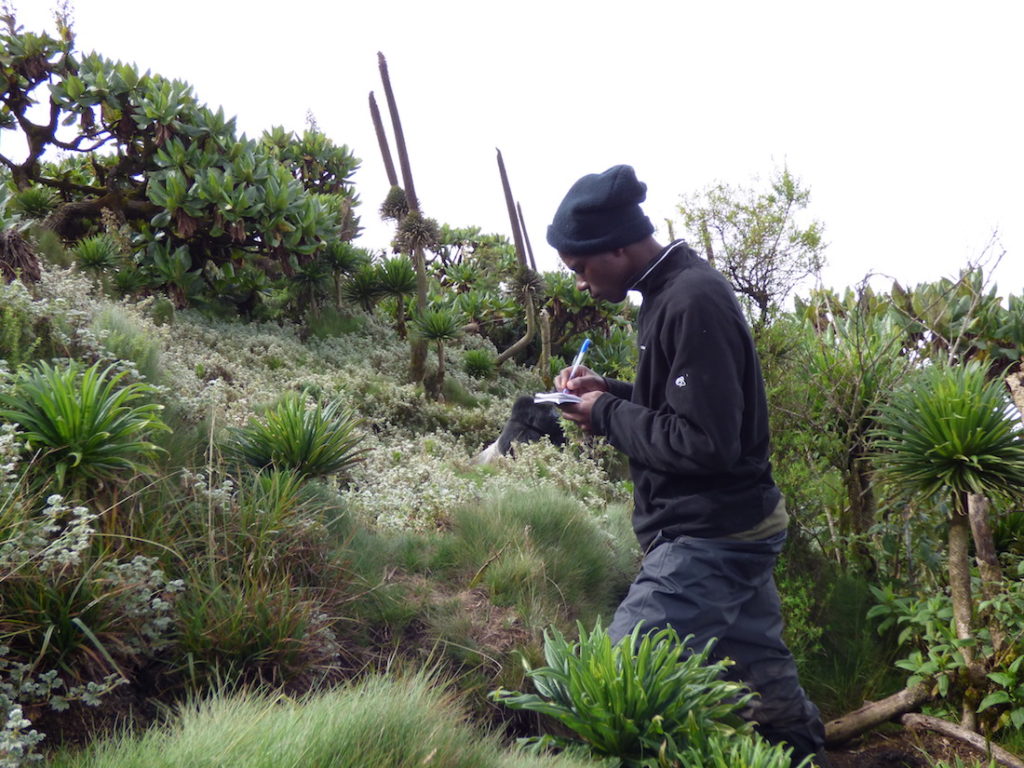
Twahira also holds a bachelor’s degree from the University of Rwanda, in biology/botany and conservation, and also did his bachelor’s thesis with us, focusing on the golden monkeys and bamboo. He was able to present and publish this research and became a leader in the Rwandan University Club for Conservation of Biodiversity as well. “Being hired as a research assistant is like a dream come true,” says Twahira, who is looking forward to presenting his research in Chicago this year.
“The skills learned when I was a research assistant myself are still helping me in my day-to-day decision making,” says Karisoke Director Felix Ndagijimana. “All that I know about gorillas originally came from those times,” he says.
“Spending every day with the gorillas, learning their rules, behaviors, and communications was the most rewarding and impacting training of my career,” says Gorilla Program Senior Adviser and Regional PR Director Veronica Vecellio, who also served as a research assistant.
Expanding program to Congo
Indeed, our research assistant program has been so important that we are now expanding it to our newer work – with Grauer’s gorillas – in the Democratic Republic of Congo. Our first research assistant there is Alain Mundola, who started in October and is helping us with data collection in Kahuzi-Biega National Park, where the only habituated Grauer’s gorillas are located. Prior to that, he volunteered with our trackers at our Nkuba Conservation Area. Mundola has a bachelor’s degree in agronomy from the Evangelical University of Bukavu in Congo.
